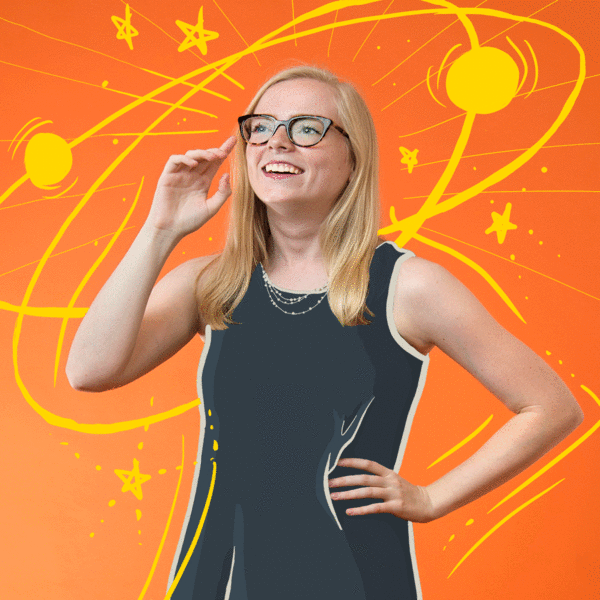Anne is a planet hunter, although she feels like that makes her work sound a bit too exciting. Every day, she sits at her laptop running an AI algorithm she wrote. It rummages through an unbelievable amount of data collected by NASA’s Kepler Space Telescope. Neural networks are a type of machine learning that helps the computer become better at identifying features and images. Instead of finding cat faces in YouTube videos, she is recognizing a specific shape that signals a planet is there. This year she had a great success. She found two planets. After graduating, she will be going to graduate school to continue hunting for planets. With each planet, she continues to confirm how rare and special our own planetary system is.
You discovered two planets. How does that feel?
It is super cool. It was really exciting to be like, I have two planets. I was the first one to know about them.
Did you get to name them?
No. That’s what everyone asks me. Sadly, I don’t since they were found with Kepler data. That’s NASA data, so they get to name them. They are named K2 293 b and K2 294 b officially, but my mom calls them one potato, two potato, which is really funny.
How rare is it to discover a planet?
Well, the population of astronomers is very small, 10,000 worldwide maybe. And we only know of fewer than 4,000 exoplanets, which is crazy because we know of millions if not billions of stars and galaxies. So, I am part of a really small group.
It's a process to remind yourself every day that you are successful.”
How has this discovery impacted you?
Imposter phenomenon has been something I have dealt with. This experience has helped me grow, to see that I got here because of hard work, not just because of luck.
For example, I have been contacted by the media a lot. But I kept thinking I’m not an expert. Andrew Vanderburg, my adviser, had to tell me, “You’re definitely an expert. You found the planets.” It’s a process to remind yourself every day that you are successful.
Are these planets Earth-like in any way?
Not really. They are “super-Earths.” So they’re larger by quite a bit, and they’re way closer to their stars. They’re really hot. They’re nothing like our own habitable planet. No one has discovered an Earth-like planet yet.
Do you want to keep searching for more planets?
That is my goal. Astronomy research is answering the questions of why we’re here and how we’re here. Finding planets thousands of light-years away may never directly impact us, but the machine learning techniques we build to find them will. It is about scientific advancement and satisfying human curiosity.
Anne Dattilo is graduating with a degree in physics from the Department of Astronomy in the College of Natural Sciences at The University of Texas at Austin. She is a Terry Scholar and an Astronomy Department Outstanding Senior.
